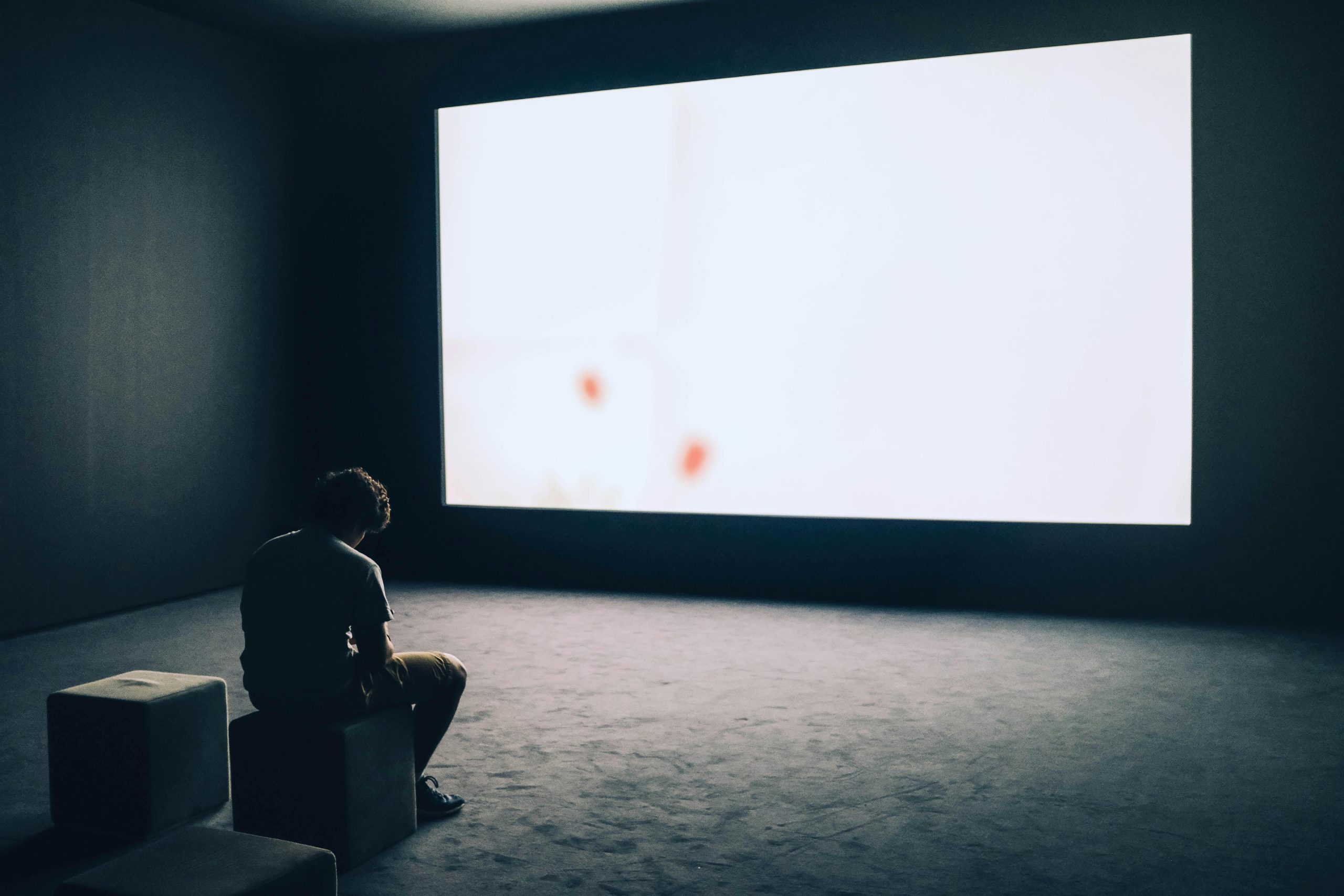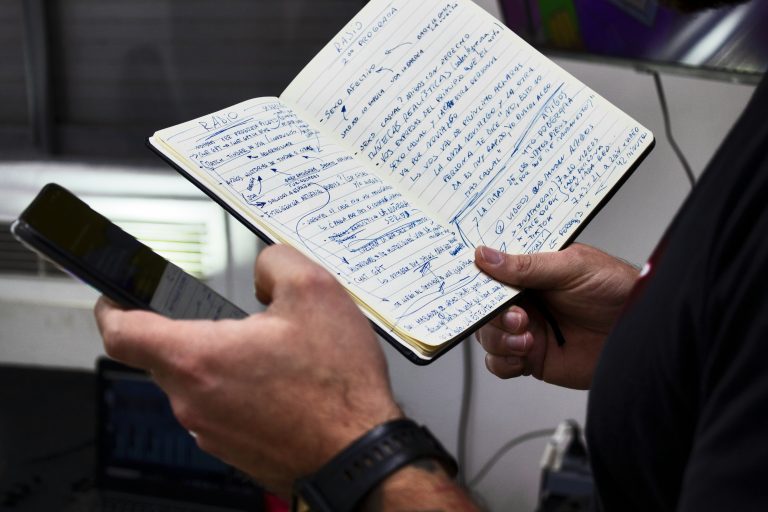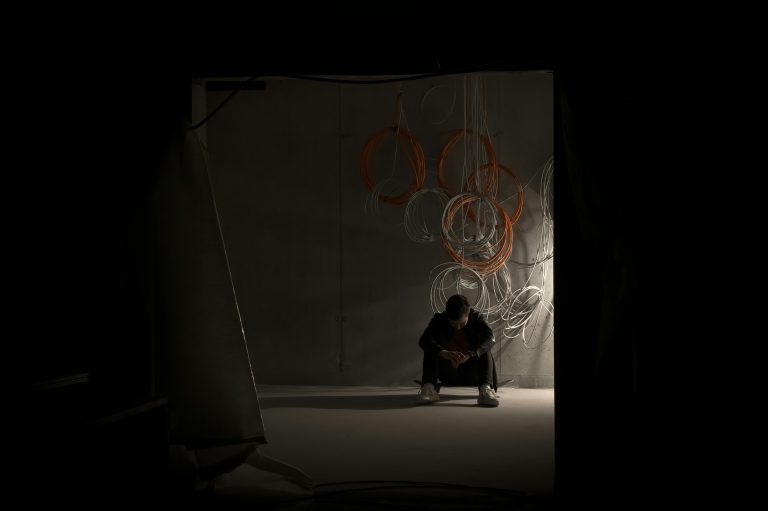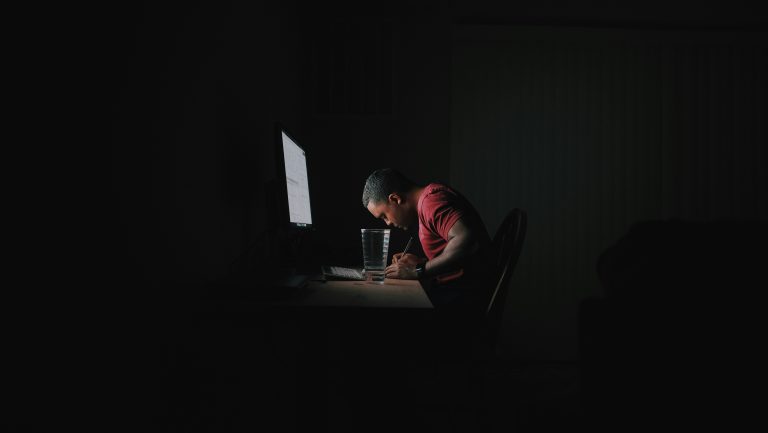7 Brutal Rules to Defeat Digital Distraction and Take Back Control
The War Against Distraction: Your Digital Ruleset
Your phone is destroying your life. Every notification is a bullet to your focus. Every scroll is a step backward. Every mindless tap is proof that you’ve surrendered control to a machine.
You know this. Deep down, you feel it eating away at your potential. The endless cycle of checking, scrolling, refreshing—it’s not entertainment. It’s digital distraction-slavery. And you’re the willing prisoner.
This isn’t another soft self-help guide about “finding balance.” This is war. War against the forces that want you weak, distracted, and dependent. The enemy has sophisticated weapons: algorithms designed to hijack your dopamine, apps engineered to steal your time, and systems built to keep you scrolling until your dreams die.
But you can fight back. You can reclaim your mind, your time, and your power. You can build a digital ruleset so bulletproof that distraction becomes impossible.
The question isn’t whether you can win this war. The question is whether you have the discipline to fight it.
Distraction Is Your Enemy
Distraction isn’t harmless entertainment. It’s the silent killer of greatness. Every time you pick up your phone “just for a second,” you’re training your brain to be weak. You’re teaching yourself that you can’t handle discomfort, that you need constant stimulation, that you’re too fragile for silence.
Your ancestors built empires with less technology than you carry in your pocket. They conquered continents, created art that lasted centuries, and solved problems that seemed impossible. What’s your excuse?
The average person checks their phone 96 times per day. That’s once every 10 minutes during waking hours. Each check fragments your attention, destroys your deep work capacity, and makes you mentally weaker. You’re not using technology—technology is using you.
Your phone doesn’t make you more connected. It makes you more isolated. It doesn’t make you more informed. It makes you more anxious. It doesn’t make you more productive. It makes you more scattered.
Stop lying to yourself. Stop pretending that “just five more minutes” of scrolling will help. It won’t. It never has. It never will.
I remember the exact moment I hit rock bottom. It was a Tuesday night, well past midnight, and I was sitting on the edge of my bed, mindlessly scrolling through my phone. My eyes burned from the screen’s glare in the dark, but I couldn’t stop.
I wasn’t doing anything important—just swapping between social media apps, watching strangers live lives I could only dream of, and letting endless notifications wash over me. I glanced at the clock out of habit and froze.
Three hours had disappeared. Three hours I’d promised myself I’d sleep.
The worst part? This wasn’t new. I’d started showing up late to meetings because I couldn’t put the damn thing down in the morning. I’d missed conversations with people I cared about because I was too busy staring at a handful of likes on a meaningless post.
I caught myself zoning out mid-sentence when talking to my girlfriend because some random alert had stolen my attention for the fourth time in an hour. My mind felt sluggish, scattered, like half of it permanently lived on a screen while the other half struggled just to get through the day.
That night, I looked at myself in the mirror and felt disgusted. Weak. Was this really who I was? A grown man enslaved by an algorithm? Hell no. That’s when I made the decision.
No more excuses. No more “I’ll limit my screen time” or “I’ll be more mindful.” I went nuclear. Deleted the apps. Blocked all the triggers. I tore my dependency out of my life root by root, no matter how ugly or hard it got. It was time to take my mind back—and I wasn’t asking for permission.
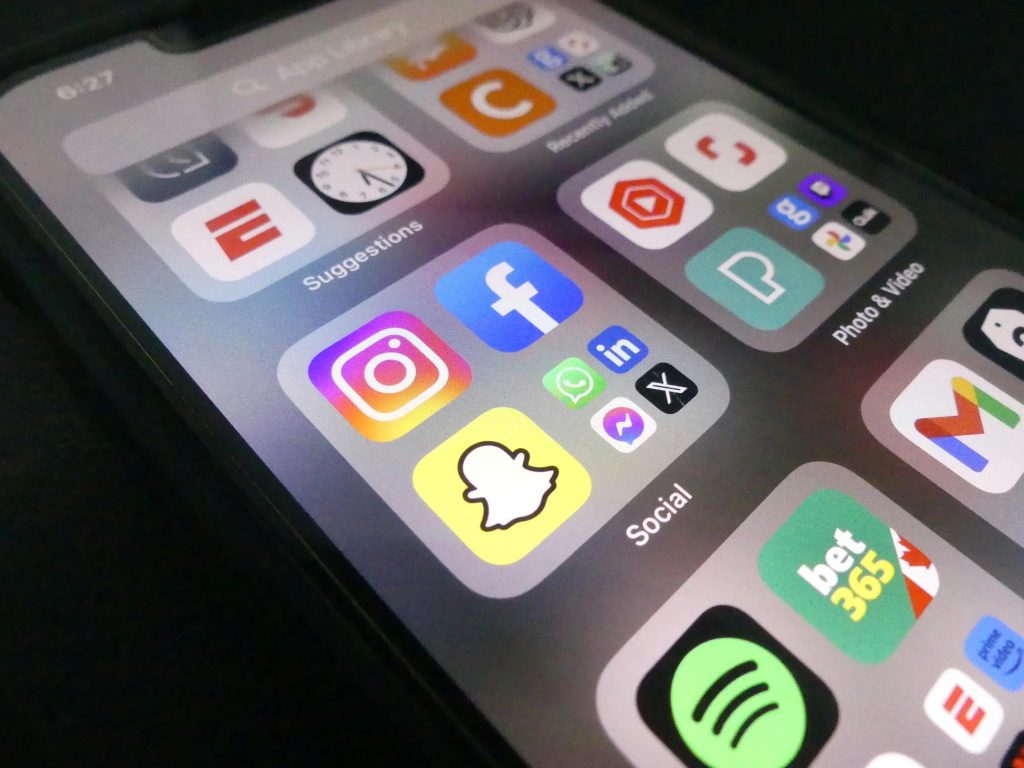
My War Log: Everything I Cut
When I started my war against distraction, I went nuclear. I deleted everything that didn’t serve my mission. No exceptions. No “but I need this for work” excuses. No gradual reduction. Complete elimination.
Here’s what I deleted:
- Instagram, TikTok, Twitter—all social media platforms
- News apps and websites (99% of news is irrelevant to your daily life)
- YouTube app (kept browser access for specific educational content only)
- All mobile games, even the “productive” ones
- Dating apps (distractions disguised as social connection)
- Any app with push notifications that weren’t essential
I also implemented physical changes:
- Moved my phone charger out of the bedroom
- Bought a real alarm clock
- Created phone-free zones in my living space
- Deleted browsers from my phone for 30 days
- Turned my phone grayscale to reduce visual stimulation
The first week was hell. My brain screamed for stimulation. I reached for my phone dozens of times, finding nothing there. Good. That phantom reaching was proof of how deep the addiction ran.
But something powerful happened in week two. Silence became comfortable. Boredom became a tool. My mind started working again instead of constantly consuming.
How to Build a Digital Ruleset
Your digital ruleset isn’t a suggestion list. It’s law. Violate it, and you lose. Follow it, and you win. There’s no middle ground.
Start with three non-negotiable rules:
Rule 1: No phone for the first hour after waking up. Your morning mind is powerful. Don’t poison it with notifications, news, or social media. Use that mental clarity for something that matters.
Rule 2: No phone for the last hour before bed. Your brain needs time to wind down. Blue light and stimulation destroy sleep quality. Protect your recovery time.
Rule 3: No phone during focused work periods. If you’re trying to accomplish something important, your phone doesn’t belong in the same room. Distance creates discipline.
Build from these three rules. Add specific restrictions based on your weaknesses. If you waste time on YouTube, block it completely for 30 days. If you scroll Instagram when you’re stressed, delete the app entirely.
Your ruleset should be simple enough to remember and strict enough to hurt. If following your rules feels easy, they’re not strong enough.

Tools: Blockers, Rituals, Systems
Willpower is overrated. Systems are everything. You need tools that make good choices automatic and bad choices impossible.
App Blockers: Use tools like Cold Turkey, Freedom, or similar tools to make distraction literally impossible.
Phone Placement: Your phone’s location determines its power over you. Keep it in another room during work. Use a physical safe or locked drawer if necessary. Distance creates freedom.
Notification Purge: Turn off all non-essential notifications. Your phone should be silent unless someone is dying or your business is on fire. Everything else can wait.
Screen Time Limits: Set brutal daily limits on problematic apps. When you hit the limit, the app becomes unusable. No “just five more minutes” options.
Ritual Building: Replace phone-checking habits with productive rituals. When you feel the urge to scroll, do push-ups instead. When you’re bored, read a book. Train your brain to seek better stimulation.
Create friction for bad habits and remove friction for good ones. Make checking social media require five steps. Make exercise require one step. Engineer your environment for success.
Weekly Review Strategy
Every week, audit your digital behavior. This isn’t optional. You can’t manage what you don’t measure.
Check your screen time reports. How much time did you spend on your phone? Which apps consumed the most time? Were there specific triggers that led to excessive use?
Ask yourself three questions:
- What digital habits served my goals this week?
- What digital habits sabotaged my progress?
- What one change would have the biggest impact next week?
Be ruthless in your assessment. If an app or website provided zero value to your life, delete it immediately. If a habit wasted time, eliminate it completely.
Your weekly review should take 15 minutes maximum. Longer than that, and you’re procrastinating with analysis instead of taking action.
If you haven’t built your deep work muscle yet, start with this system.
Document your progress. Keep a simple log of your digital victories and failures. Seeing your improvement over time builds momentum. Seeing your failures prevents complacency.
Quiet Equals Creativity
Your best ideas don’t come when you’re consuming content. They come when you’re bored, walking, or staring at the wall. Constant stimulation kills creativity. Silence feeds it.
The most successful people in history spent hours in quiet contemplation. They didn’t have phones, social media, or endless entertainment options. They had boredom, and they used it as fuel.
When you eliminate digital distraction, your brain starts working differently. Instead of constantly consuming, it starts creating. Instead of reacting to external stimuli, it generates internal insights.
Protect your quiet time like your life depends on it. Because it does. Every moment of silence is a moment where breakthrough ideas can emerge. Every hour without stimulation is an hour where your mind can process, connect, and create.
Boredom isn’t the enemy. Boredom is the birthplace of greatness.
When you study top performers, one thing becomes clear — they don’t just stumble upon greatness. They deliberately carve out quiet time to think, plan, and create.
Take Bill Gates, for example, with his famous “Think Weeks.” Twice a year, he isolates himself in a cabin with nothing but books, a notebook, and time. No distractions, no interruptions. That’s how he developed game-changing insights that propelled Microsoft and refined his approach to philanthropy.
Similarly, many great athletes and leaders like Kobe Bryant adopted meditation and reflection as non-negotiable daily practices to sharpen their mental edge. Silence wasn’t a luxury for them; it was their secret weapon.
Want to build unbreakable focus and creativity into your life? Start by treating silence with the same respect you do your most critical meetings. Here’s how:
- Schedule a Power Hour of Silence – Block off one hour daily in your calendar where nothing interrupts you. No phone, no notifications, no excuses. Use this time for deep work, journaling, or letting your mind strategize freely.
- Name It and Guard It – Don’t just leave quiet time to chance. Give it a name like “Mental Conditioning” or “Strategic Thinking Session.” By naming it, you assign it purpose. Protect it like it’s the core of your success, because it is.
- Own Your Mornings – Wake up earlier and make the first 30 minutes your fortress of solitude. No devices, no input, just a moment to breathe, meditate, or write. This sets the tone for your entire day, giving you calm control over chaos.
Quiet time isn’t passive — it’s when you lay the groundwork for massive breakthroughs. Treat it like the VIP appointment it is. Your future self will thank you.

The 3-Tier Distraction Filter
Not all digital content is created equal. Some serves your mission. Most serves someone else’s agenda. You need a filter system to separate signal from noise.
Tier 1 – Mission Critical: Content that directly advances your goals. Educational material for skills you’re building. Information required for your work or business. Communication with people who matter.
Tier 2 – Potentially Useful: Content that might provide value but isn’t essential. Documentaries on topics you’re interested in. Podcasts by experts in your field. Books recommended by people you respect.
Tier 3 – Pure Distraction: Entertainment, gossip, news that doesn’t affect your life, social media scrolling, clickbait articles, time-wasting videos.
Your rule: Only consume Tier 1 content during peak focus hours. Tier 2 content gets limited time slots. Tier 3 content gets eliminated completely.
Most people consume 90% Tier 3 content and wonder why they feel scattered and unproductive. Winners flip the ratio. They consume mostly Tier 1, occasionally Tier 2, and never Tier 3.
What tier is the content you consumed yesterday?
Sample Day Schedule for the 3-Tier Filter
Here’s how you can structure your day to maximize your focus, fuel your growth, and eliminate distractions. Stick to this framework, and you’ll notice the difference almost immediately:
6:00 AM – 9:00 AM
Tier 1 Content: Your brain is sharpest in the morning, so use this time strategically. Read high-value books, work on core tasks, learn new skills, or plan your goals for the day. This is your power zone—protect it at all costs.
9:00 AM – 12:00 PM
Tier 1 Content: Double down. Tackle your most important projects, deep work, or problem-solving tasks. Avoid notifications and shallow work. This is where the big wins happen.
12:00 PM – 1:00 PM
Break – No Content: Disconnect, recharge, and give your mind a rest. Eat, move, and reflect. Stay off your devices.
1:00 PM – 4:00 PM
Tier 1 Content (with Tier 2 in Small Bursts): Continue with productive work, but sprinkle in short windows of Tier 2 content if needed for insight or creative inspiration. Reference niche industry news or follow thought leaders strictly aligned with your goals. Don’t lose focus—keep it intentional.
4:00 PM – 5:30 PM
Tier 2 Content: Wind down with light research, professional networking, or exploration of general-interest topics that align with your growth. This is the time to be curious, not distracted. Avoid anything from Tier 3 masquerading as “worthwhile.”
5:30 PM Onward
No Tier 3. Period. Use your evenings for meaningful social connections, journaling, or relaxation—but keep your boundaries strict. Watch a documentary? Sure. Scroll aimlessly on social media? Absolutely not. Guard your evening from the digital abyss.
Implement this schedule, and you will reclaim hours of your day while sharpening your ability to focus on what truly matters. Successful days are built, not stumbled upon—take control, or stay stuck.

Phone Protocols
Your phone needs protocols, not preferences. Protocols are non-negotiable rules that govern when, where, and how you use your device.
Morning Protocol: Phone stays off until after morning routine completion. No exceptions. No “quick checks.” No “important messages.” Everything can wait one hour.
Work Protocol: Phone in airplane mode or another room during focused work blocks. Use a separate device for work-related communication if necessary. Distraction-free work isn’t negotiable.
Evening Protocol: Phone goes into “do not disturb” mode three hours before bed. Use this time for reading, planning tomorrow, or connecting with people in real life.
Weekend Protocol: Designate phone-free hours on weekends. Go for walks without your device. Have meals without digital entertainment. Rediscover what silence feels like.
Emergency Protocol: Define what constitutes a real emergency. Family member in hospital? Real emergency. Work email marked “urgent”? Not an emergency. Most “urgent” things aren’t.
These protocols will feel extreme at first. Good. Extreme problems require extreme solutions. Your phone addiction is extreme. Your response should be too.
Device Audit Checklist
Your devices should serve you, not control you. Use this checklist monthly to ensure your technology remains a tool, not a master.
Apps: Delete any app you haven’t used in 30 days. Uninstall apps that provide pure entertainment with no educational value. Remove apps that send unnecessary notifications.
Subscriptions: Cancel digital subscriptions you don’t actively use. This includes streaming services, news sites, and app subscriptions. If you haven’t used it this month, you don’t need it.
Notifications: Turn off all notifications except calls and texts from important contacts. Your attention is more valuable than someone else’s need for an immediate response.
Home Screen: Remove all social media apps from your home screen. Make accessing distracting content require multiple taps. Add shortcuts to productive apps like reading, exercise tracking, or learning platforms.
Passwords: Remove saved passwords for time-wasting websites. Make logging into distracting platforms require effort. Friction prevents mindless usage.
Conduct this audit ruthlessly. Every app you keep should have a clear purpose that serves your goals. Everything else is digital clutter that needs elimination.

Own Your Inputs, Own Your Life
You become what you consume. Consume garbage, become garbage. Consume excellence, become excellent. Your inputs determine your outputs.
The content you watch, the podcasts you hear, the articles you read—they’re not neutral. They’re programming your mind, shaping your thoughts, and influencing your actions. If you’re not choosing your inputs deliberately, someone else is choosing them for you.
Your phone wants you weak. Social media wants you insecure. News media wants you anxious. They profit from your attention, your data, and your dependency.
Need to understand how dopamine fuels digital addiction? This breaks it down.
But you have a choice. You can take control of your inputs. You can choose content that makes you stronger, smarter, and more focused. You can build systems that protect your attention and serve your mission.
The war against distraction isn’t just about blocking apps or limiting screen time. It’s about taking ownership of your mind. It’s about choosing growth over comfort, signal over noise, intention over impulse.
Your attention is your most valuable asset. Stop giving it away for free. Start investing it in your future. Build your digital ruleset, enforce it religiously, and watch your life transform.
The enemy is strong. But you’re stronger. The distractions are endless. But your discipline can be absolute.
The war against distraction starts now.
Stop reading. Start fighting.

